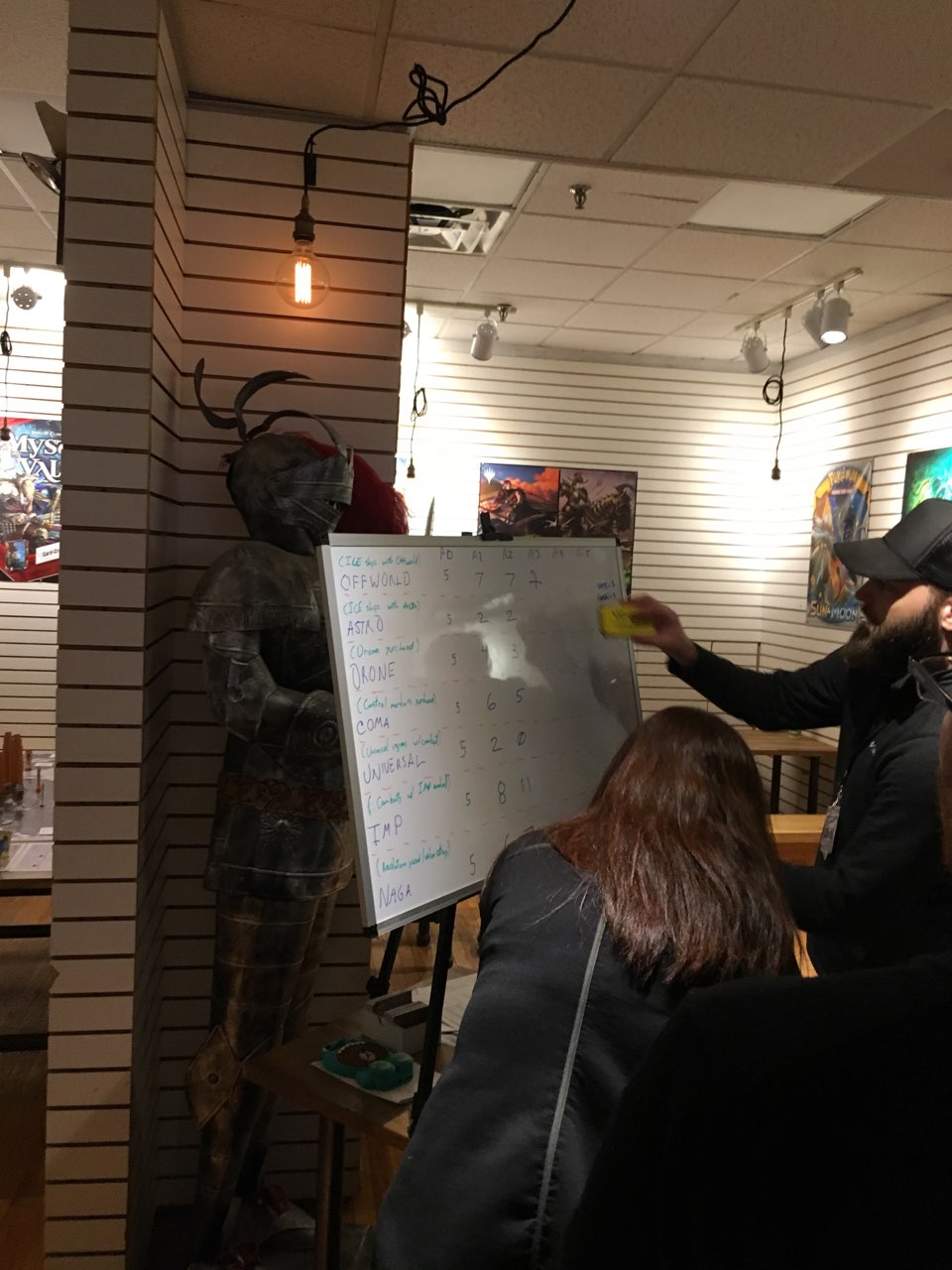By Ian McNeely
Players watch with uncertainty, discussing what to do about the invasion of mysterious spiders from space. It's tough out there for intergalactic corporations.
This weekend, I joined 30 other meganerds to play a megagame at Hex and Company on New York's Upper West Side. Future Tense, designed by Scott Silsbe and Mike Sette, casts players as futuristic entrepreneurs competing and colluding to achieve economic dominance. The event is pure mayhem: Armies battle on an area-control map game, delegates shout at the mock United Nations, and panicked investors buy and sell corporate shares at a live stock market all developing in real-time, affecting one another and creating a great story.
At the stock market, supply and demand determine company's relative value and players gamble to make a quick buck.
My group, the Offworld Trade Union, was basically intergalactic UPS. Our Mission: Convince other teams to grant us shipping contracts to haul their precious resources. Our competition was the Astrogation Alliance (Space FedEx), and most of the game was spent trying to underbid them or bribe away their clients with lucrative favors. In the end, they creamed us taking nearly two thirds of the transportation marketshare. But, our stock appreciated nicely, so I'd like to think our ending was a happy retirement.
The currencies of Future Tense: Influence, spacebucks and industry.
Meanwhile, on the map, rival corporations produced drones to take resource-generating locations. Mercenaries were hired, alliances were forged and broken, mysterious space-spiders invaded and things got messy. It was interesting to see how this game module brought out the confrontational side in people, I'm looking at you, Risk kids! Maybe it's human nature to want to expand out borders? Maybe maps bring out the worst in people? All I know is this part of the game seemed the very acrimonious as my cooperative conference table kept craning our necks to keep tabs on the newest imbroglio.
A solitary drone contemplatively ponders his place in the universe. "Am I just a cog in a giant machine?" Yes.
If you're in the New York area, be sure to check out LiveWare Lab for details about their upcoming events. The atmosphere is casual, fun, and an exciting way to spend an afternoon. Highly recommend it.











